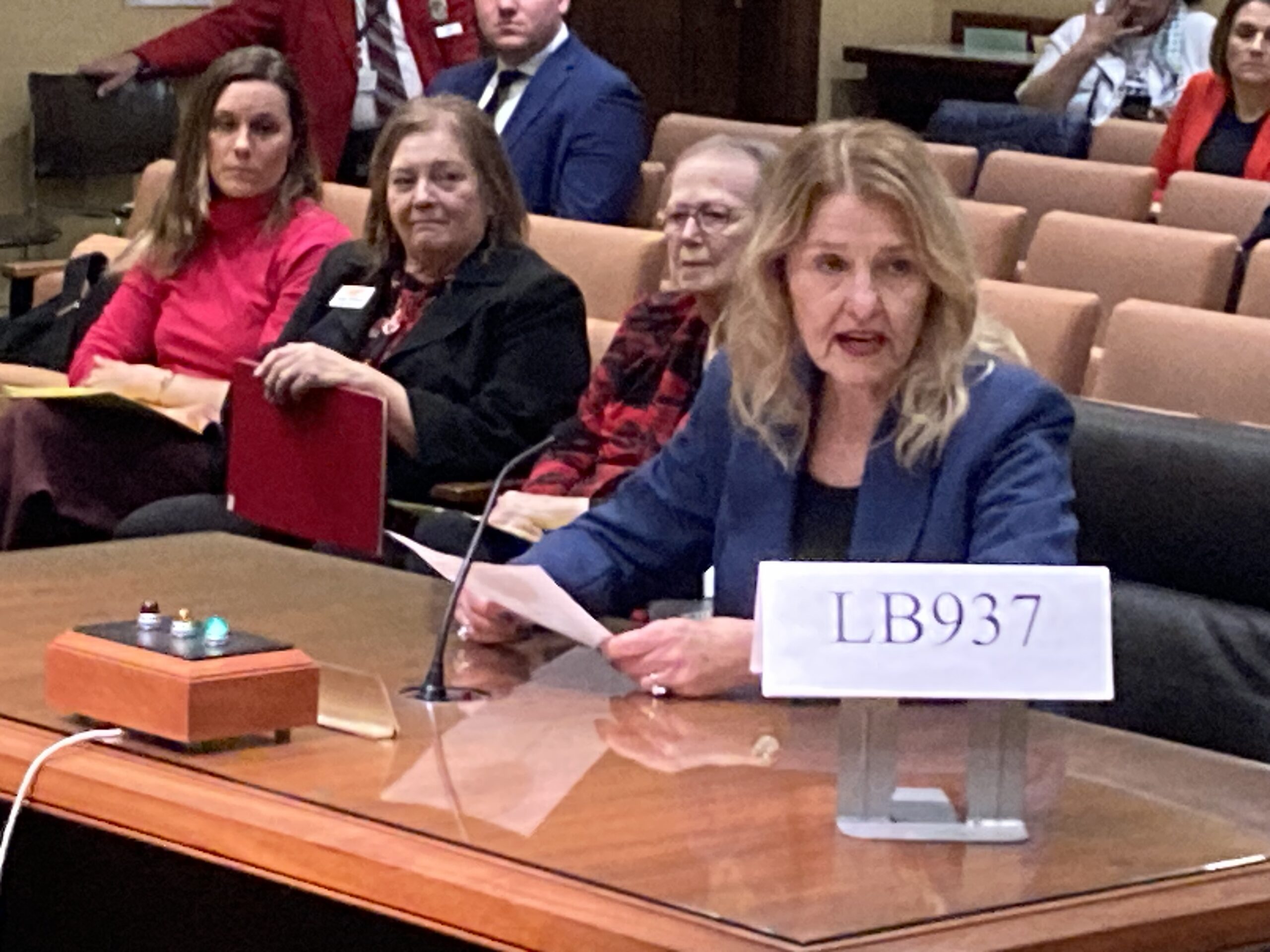Nebraska
Caregivers say tax credit would help them afford care of loved ones and reduce state costs

LINCOLN — The health of Joyce Beck’s husband spiraled downward after he was diagnosed with multiple sclerosis in his 40s.
There was a quadruple heart bypass surgery in his 50s, followed by issues with erratic blood pressure and, later, prostate cancer and a fractured hip and pelvis.
Beck, a hospital CEO, was forced to retire early to provide the almost constant care her husband needed. That made it even harder to afford the estimated $10,000 a year in out-of-pocket costs for medications and his health care.
On Thursday, Beck and others told a state legislative committee that a proposed state tax credit would help her and other family caregivers afford care for their loved ones, keeping them out of nursing homes and off taxpayer support.
Help keep loved ones at home
State Sen. Eliot Bostar of Lincoln said it only makes sense to help family caregivers because of “a surge in older adults” and a decrease in those available to care for them.

“We must develop methods to enable caregivers to continue to support their loved ones at home … in the most comfortable environment,” Bostar told the Legislature’s Revenue Committee.
His Legislative Bill 937, patterned after an Oklahoma “Caring for Caregivers Act” passed last year, would allow caregivers who care for an aged, sick or disabled loved one at home to claim a state income tax credit of $2,000 a year. The credit would rise to $3,000 a year if the person being cared for was a military veteran or suffered from dementia.
The credit would be targeted at low- and middle-income families who earn less than $100,000 a year for a couple or $50,000 a year or less for an individual.
‘Personal toll’ for caregivers
Bostar said that the credit, which amounts to $5.50 a day, could help delay a transfer to a nursing home — which costs nearly $250 a day — and avoid drawing down personal income which precedes going on taxpayer-supported Medicaid.
“Caregiving is a labor of love, but it can come at a great personal toll,” the senator said.
Caregivers, along with AARP Nebraska and associations for the intellectually disabled and those suffering from Lou Gehrig’s Disease all testified in support of the bill.
Suzan DeCamp of the AARP said an estimated 179,000 family caregivers in Nebraska provide over 168 million hours of unpaid care to loved ones, valued at $2.8 billion (computed at $16.95 per hour).
Sacrifice is emotional and physical
Besides the personal physical and emotional hardship of being a caregiver, DeCamp said there are financial costs.
Caregivers often pick up expenses, such as mortgage payments and trips to doctors’ appointments, and lose income if they need to leave their jobs or cut back on their hours to provide care. One national report, DeCamp said, estimated the out-of-pocket expenses of caregivers at $7,242 a year.
One caregiver, Sarah Rasby, told senators she lost her job because of the demands of caring for her twin sister, who had experienced a serious brain injury.
“To this day, our family is still trying to (financially) recover,” she said.
Maghie Miller-Jenkins said that when her father was diagnosed with cancer, it fell to her to drive him from Lincoln to Omaha five days a week for treatments at the VA hospital.
After she got into an accident, and received a traffic ticket, the then-19-year-old, barely out of high school, worried how she would afford the 100-mile round trips to her dad’s appointments.
Skepticism about fiscal note
“It would be nice to think that the people who make the laws were thinking about me,” Miller-Jenkins said in support of the tax credit bill.
Comments from the committee in response to the proposal were mostly positive, though there was widespread skepticism about the fiscal note prepared for LB 937, which estimated the cost of the bill at between $37 million and $51 million a year.
Bostar said the fiscal impact projection didn’t include how many caregivers would get the tax credit.
The credit is “non-refundable,” the senator said, which means only those with state income tax liabilities could get the credit. That narrows how many caregivers would qualify, he said.
Glenvil Sen. Dave Murman added it’s likely that LB 937 would save the state money in the long run by keeping people at home and off Medicaid.
The Revenue Committee took no action on the bill following its public hearing. Bostar pledged to provide more data about the proposal’s benefits and urged the panel to advance it for debate.
GET THE MORNING HEADLINES DELIVERED TO YOUR INBOX













You must be logged in to post a comment Login